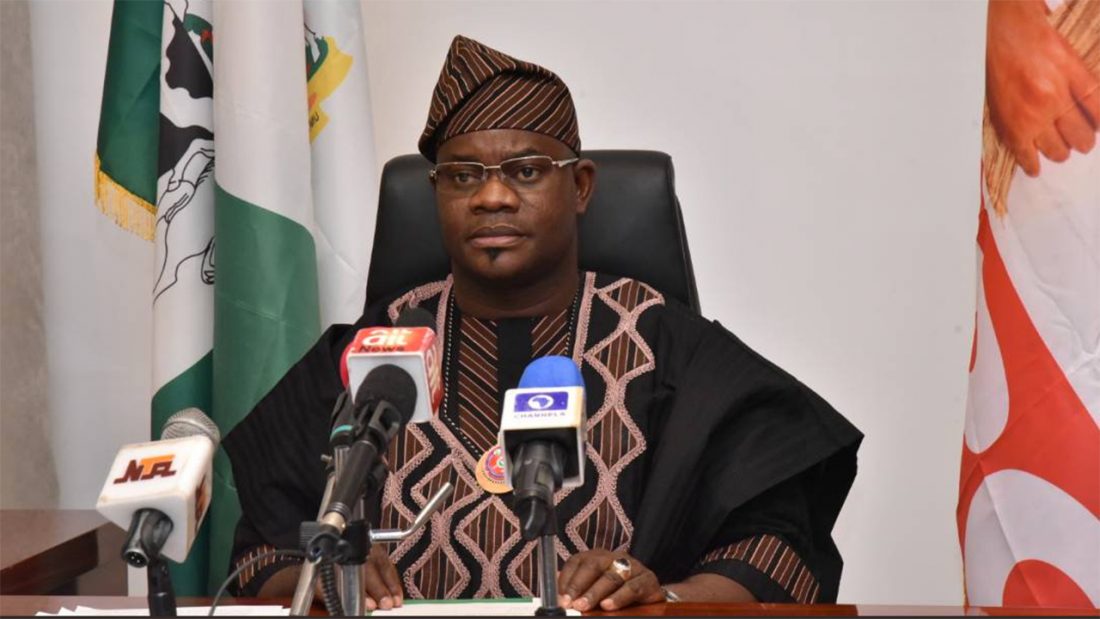ABUJA, Nigeria – A member of Nigeria’s ruling All Progressives Congress, APC, have voiced concerns over handling financial crime investigations by the Economic and Financial Crimes Commission, EFCC, particularly regarding the treatment of former Kogi Governor, Yahaya Bello.
These remarks were made during a press briefing on Friday, April 26, 2024, in Abuja by Jesutega Onokpasa, a lawyer and the Head of the Tinubu Media Support Group.
Addressing the media, Onokpasa criticised the EFCC’s approach, particularly its method of summoning individuals for questioning, which he claimed bypassed formal procedures.
“The rule of law must always prevail because without the law, we would not have a society and without courts, we would not have civilisation,” he stated, emphasising the importance of following established legal processes to maintain public trust and legal integrity.
Onokpasa highlighted a recent incident involving former Governor Bello, who was reportedly invited for questioning via a telephone call rather than a formal written notice.
“There is a procedure in law for inviting a person of interest, which is by a formal written letter to invite such persons, which could be followed by a telephone call,” he explained, suggesting that such an approach undermines the legal rights of the individual and the credibility of the EFCC.
He further criticized the EFCC for lacking substantial evidence when accusing the current Kogi Governor, Ahmed Usman, of aiding his predecessor in evading custody.
Describing these allegations as “absurd,” Onokpasa called for respect towards the presidency and its anti-corruption efforts. “I can assure you that President Bola Tinubu is hell-bent on fighting corruption, we must all respect him and key into the struggle,” he affirmed.
The APC chieftain’s remarks reflect growing concerns within the ruling party about the potential misuse of government agencies as tools of intimidation rather than instruments of justice.
Onokpasa urged the EFCC to adhere strictly to legal norms to prevent governmental abuse and safeguard the reputation of Nigeria’s institutions.







